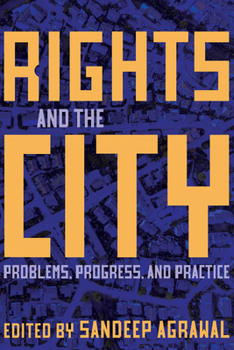Rights and the City: Problems, Progress, and Practice
Select Format
Select Condition 
Book Overview
Rights and the City takes stock of rights struggles and progress in cities by exploring the tensions that exist between different concepts of rights. Sandeep Agrawal and the volume's contributors expose the paradoxes that planners and municipal governments face when attempting not only to combat discriminatory practices, but also advance a human rights agenda. The authors examine the legal, conceptual, and philosophical aspects of rights, including its various forms--human, Indigenous, housing, property rights, and various other forms of rights. Using empirical evidence and examples, they translate the philosophical and legal aspects of rights into more practical terms and applications. Regionally, the book draws on municipalities from across Canada while also making broad international comparisons. Scholars, policy makers, and activists with an interest in urban studies, planning, and law will find much of value throughout this volume. Afterword by Benjamin Davy. Contributors: Sandeep Agrawal, Rachelle Alterman, Sasha Best, Alexandra Flynn, Eran S. Kaplinsky, Ola P. Malik, Jennifer A. Orange, Michelle L. Oren, Ren e Vaugeois. Afterword by Benjamin Davy
Format:Hardcover
Language:English
ISBN:1555460704
ISBN13:9781555460709
Release Date:January 1988
Publisher:Chelsea House Publications
Length:149 Pages
Weight:1.00 lbs.
Dimensions:0.8" x 6.4" x 9.5"
Customer Reviews
5 customer ratings | 4 reviews
There are currently no reviews. Be the first to review this work.





















